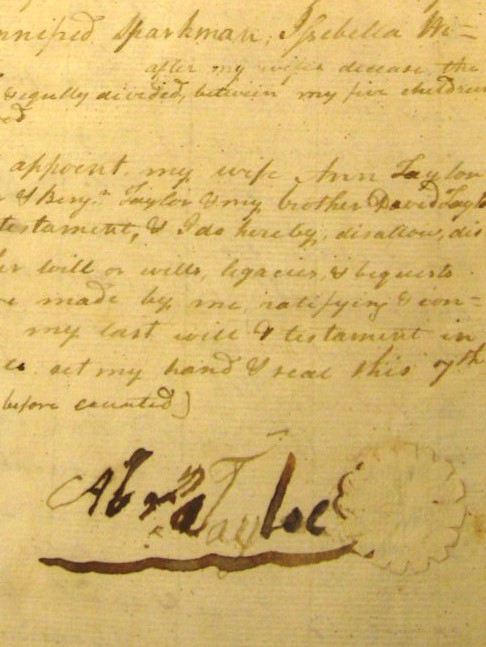During the Revolutionary War, Tayloe served as a private in the Continental Army of North Carolina, enlisting on March 27, 1777, in Chowan Precinct.
Tayloe served three years under the command of Colonel John Patton and Captain Robert Fenner. This battalion was at Valley Forge, Princeton and Brunswick. The 2nd North Carolina Regiment was also at these known battles: Brandywine, Pennsylvania; Germantown, Pennsylvania; Monmouth, New Jersey and the Siege of Charleston, South Carolina. Records also show him listed at the camp of White Plains, New York. General Washington noted that the North Carolina troops were the poorest supplied of all the destitute men there; however, the desertion rate of the North Carolina troops was 10%, which was the lowest in the Army, which averaged at 18%. (Tayloe’s father, Richard, was also a Patriot serving in Civil Service during the Revolutionary War. DAR Ancestor A112266)
After Tayloe’s service, he returned to his wife, Anne. Together they raised seven children: Penelope Tayloe Fleetwood, Isabella Tayloe Witherington, Richard Tayloe, Benjamin Tayloe, Winifred Tayloe Sparkman, George Tayloe and Kinchen Tayloe. Tayloe remained in Bertie County until his death. He appointed his wife, Ann Tayloe and two sons, Richard and Benjamin Tayloe, and his brother, David Tayloe, as his executors to his last will and testament dated November 7, 1801.
Abraham Tayloe mentions in his will a grandson, David Tayloe, son of Abraham’s deceased son Kinchen Tayloe. Kinchen’s wife, Anne Outlaw Tayloe, remarried to Lodowich Pruden, first cousin to Kinchen. Lodowich became legal guardian of David who was a small boy when his father passed away. David Tayloe changed his name to Taylor and after he was married to Susanna Simson of Pasquotank County, North Carolina, and they migrated to Henry County, Indiana, and later to Missouri.



